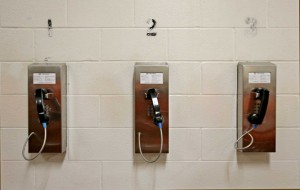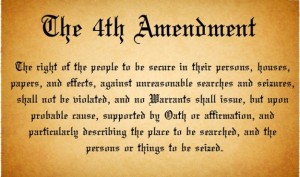 People v. Emmanuel Diaz
People v. Emmanuel Diaz
New York Court of Appeals
2019 NY Slip Op 01260
Decided: February 21, 2019
ISSUE:
Whether a correctional facility is in violation of the Fourth Amendment when it releases nonprivileged telephone calls made by a pretrial detainee, who was informed that all calls will be monitored and recorded, to prosecutors or law enforcement.
HOLDING:
The Court held that a correctional facility is not in violation of the Fourth Amendment when they record, monitor and share recordings with law enforcement and prosecutors because a detainee who is made aware of the monitoring and recording of their calls reserves no reasonable constitutional expectation of privacy in the content of those calls.
FACTS OF THE CASE:
 Appellant Emmanuel Diaz was arrested and sent to Rikers Island Correctional for burglary and robbery. During the eight months he remained in jail, Diaz made numerous phone calls from prison. At trial, the prosecution successfully sought to introduce incriminating statements, which were taken from recordings of several of those phone calls. Diaz was subsequently convicted and sentenced to prison.
Appellant Emmanuel Diaz was arrested and sent to Rikers Island Correctional for burglary and robbery. During the eight months he remained in jail, Diaz made numerous phone calls from prison. At trial, the prosecution successfully sought to introduce incriminating statements, which were taken from recordings of several of those phone calls. Diaz was subsequently convicted and sentenced to prison.
On appeal, Diaz argued that the use of the phone call recordings as evidence violated his Fourth Amendment rights. The Appellate Division affirmed his conviction and found that Diaz had consented to the monitoring and recording of his phone conversations because the Department of Corrections gave him sufficient notice.
COURT’S ANALYSIS:
Pursuant to the Rules of the City of New York, the Department of Corrections may monitor prisoner phone calls where prisoners have been given legally sufficient notice with a few exceptions including attorney phone call. Inmates must be notified by three methods: 1) signs posted near the telephones, 2) a notice in the inmate handbook, and 3) a recording when an inmate picks up the phone.
According to the appellant, turning over phone call recordings to the prosecution violated his Fourth Amendment right against unreasonable search and seizure because he had a reasonable expectation of privacy with regard to his phone calls. The Court of Appeals disagreed. Aside from the notices which the Department of Corrections is required to give to inmates, the Court held that inmates logically have a lower expectation of privacy, pointing to examples such as routine warrantless searches of inmates and their cells (see Bell v Wolfish, 441 US 520, 547).
Given the repeated warnings the defendant received that the calls would be monitored and recorded along with the logically lowered expectation of privacy in prison, the Court held that there was no objective reasonable expectation of privacy to inmate phone calls. According to the Court “there is no legitimate reason to think that the recordings, like any other evidence lawfully discovered, would not be admissible.” United States v Eggleston, 165 F.3d 624, 626; see also United States v Novak, 531 F.3d 99, 103 (1st Cir. 2008). Additionally, although inmate calls are not available to the public, The DOC Operations Order provides that the prosecution may request a copy of the recordings.
The Court of Appeals affirmed the order of the Appellate Division.

